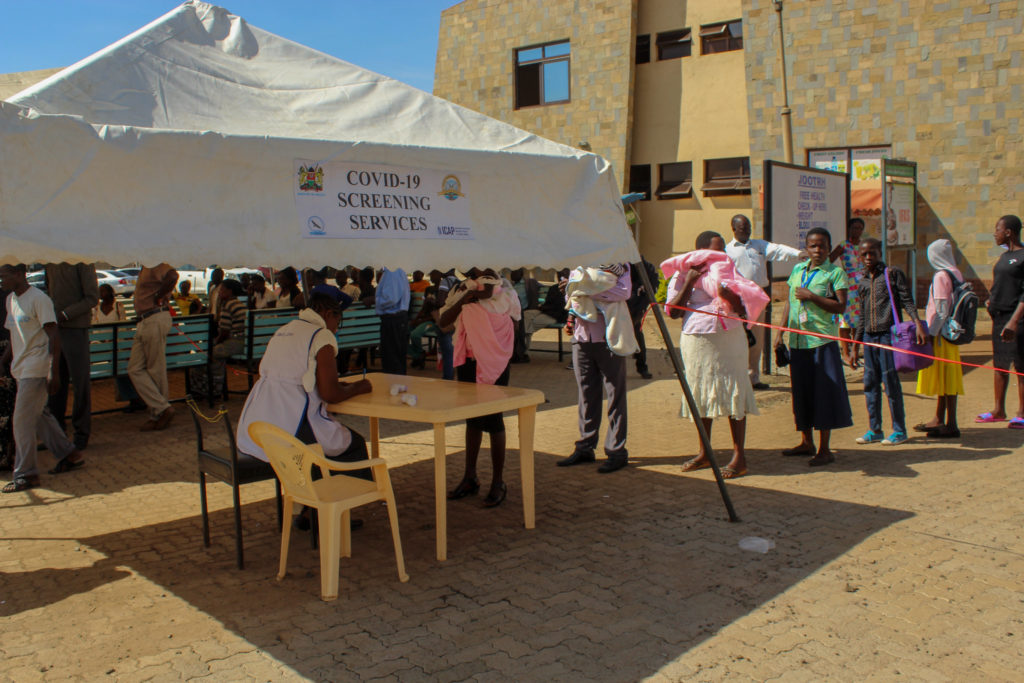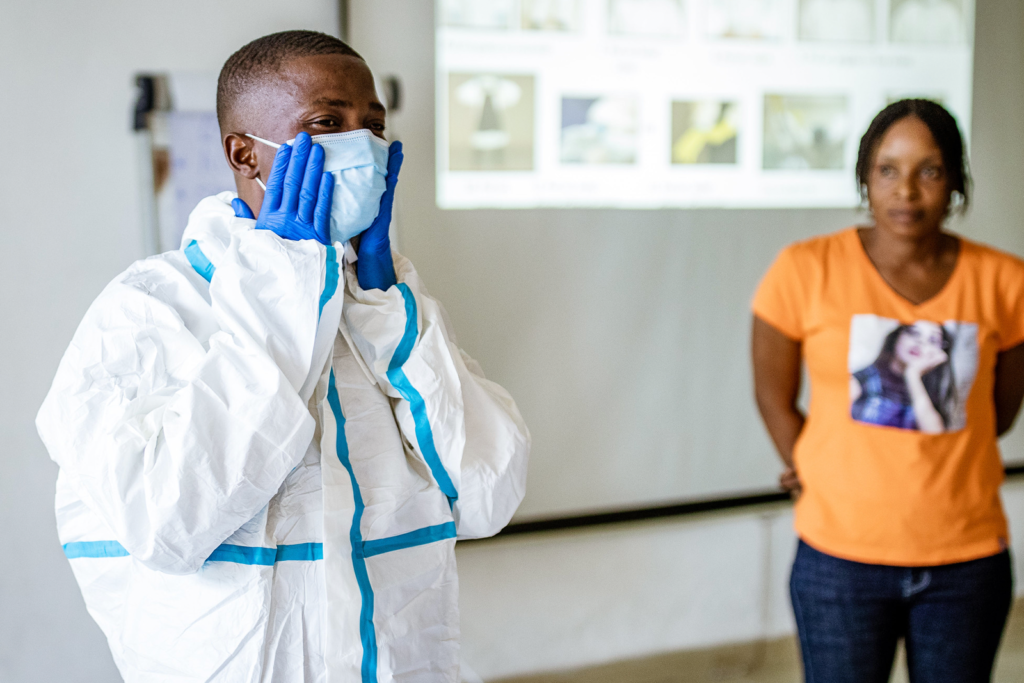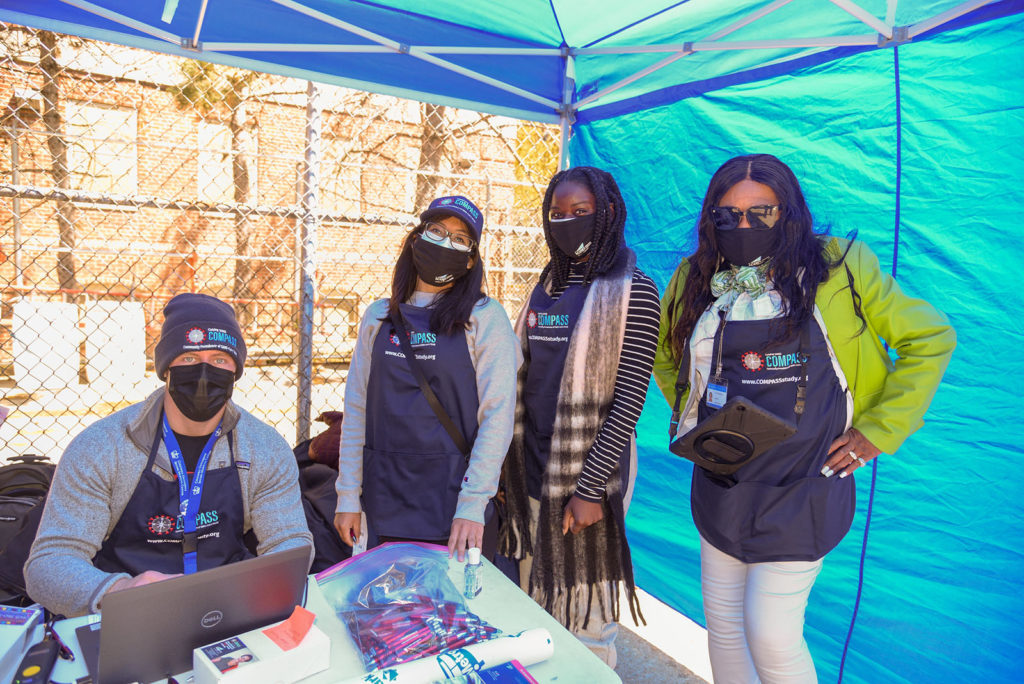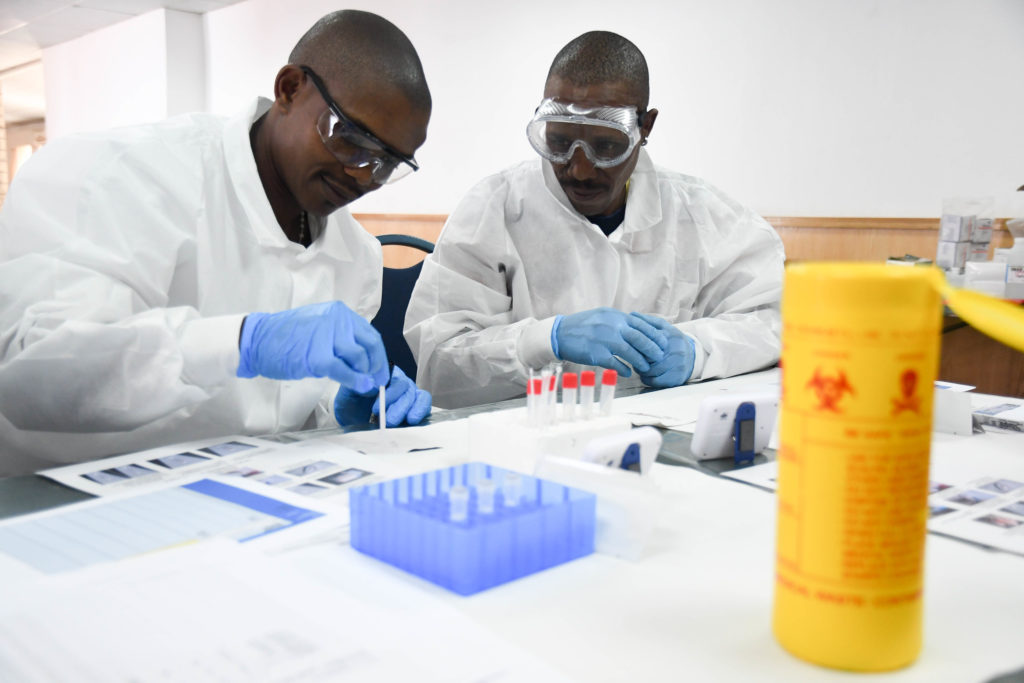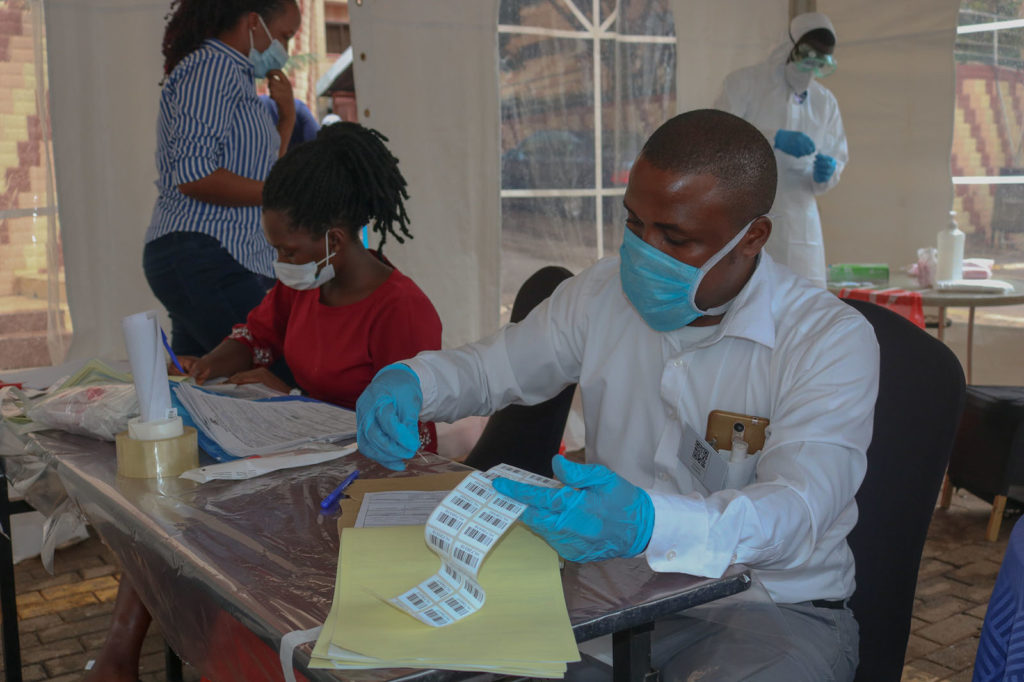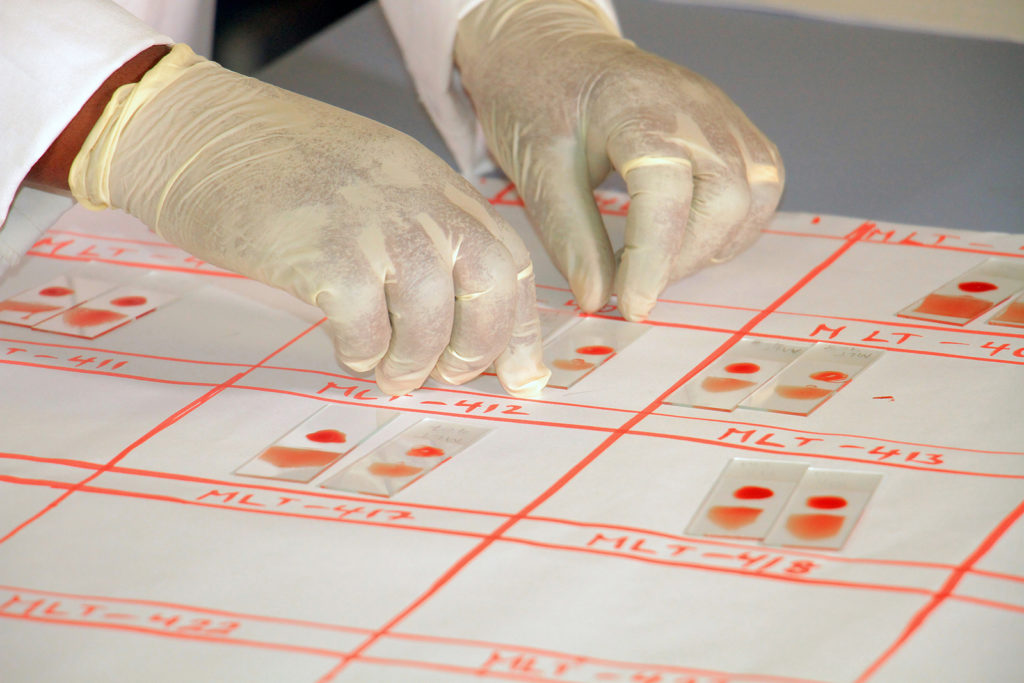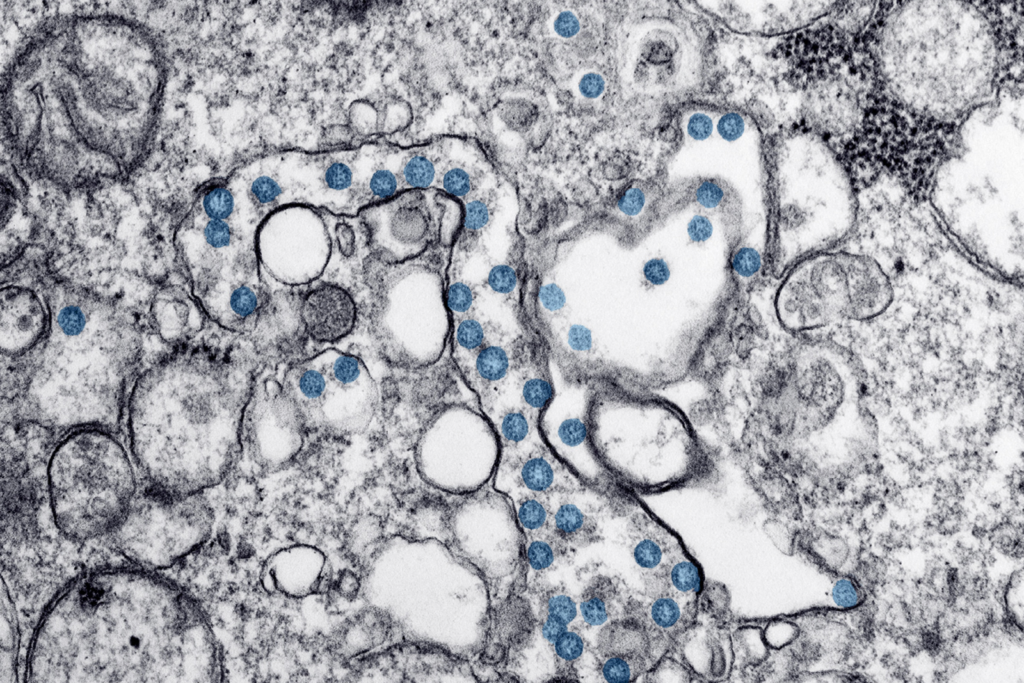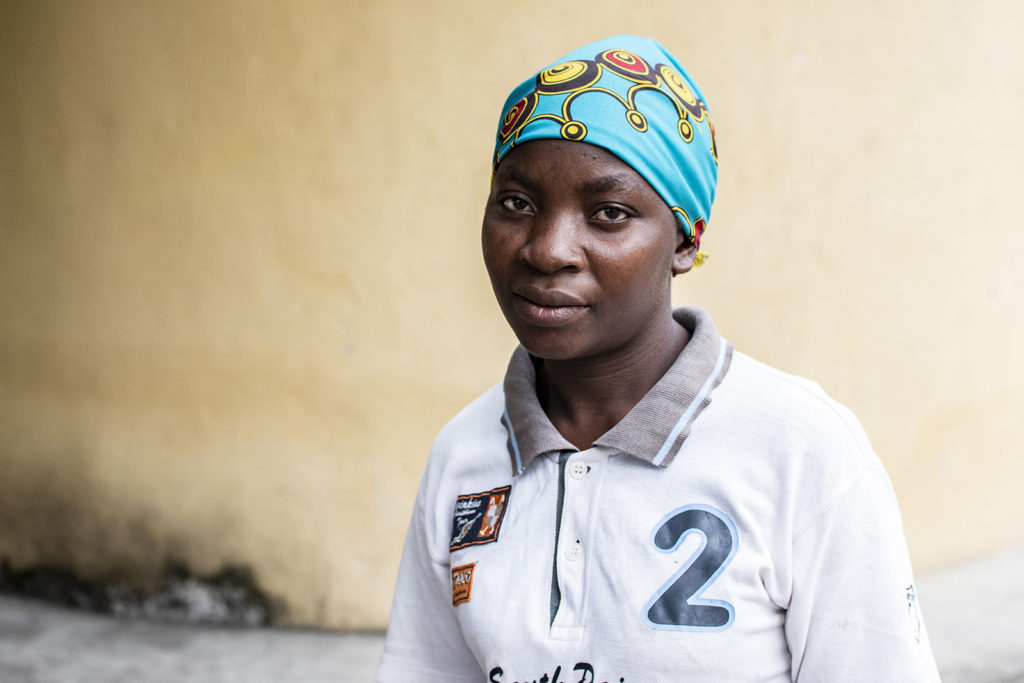Harnessing Tech to Advance HIV Recency Testing
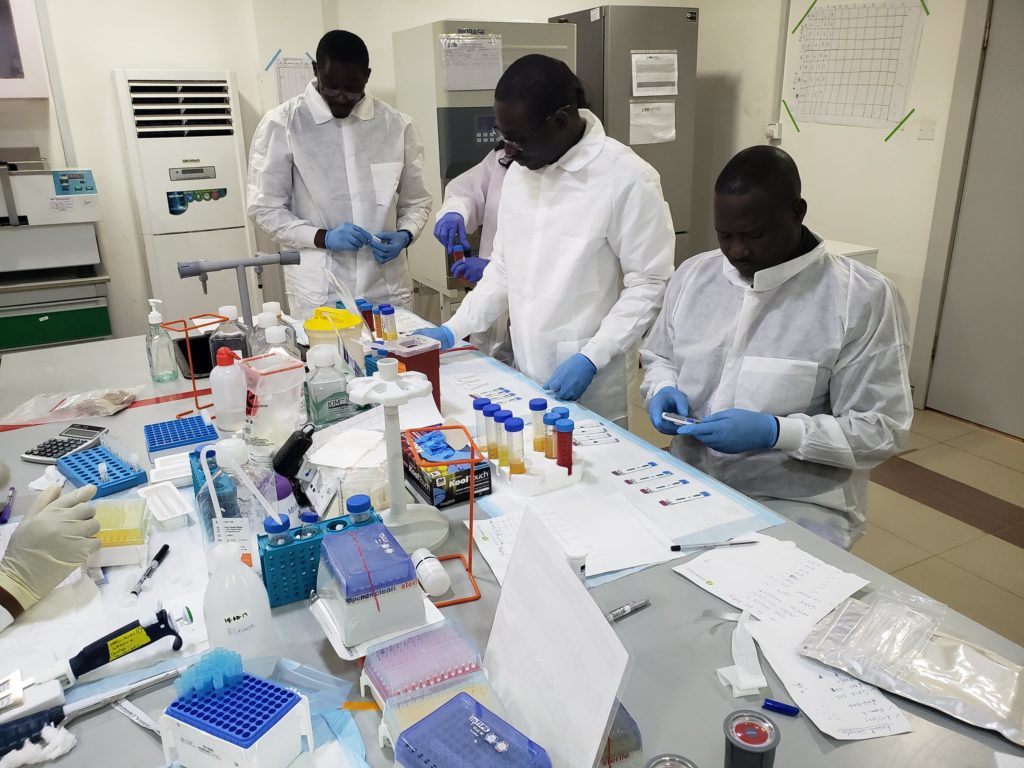
As hope for the end of the HIV pandemic is coming into sight in many countries, public health systems in high-burden countries now have a laser focus on reaching the sectors of the population that are key to breaking the transmission chain. One of these critical demographics is people who are recently infected with HIV and might not realize it. These people may wait years before seeking treatment, putting their own health at risk as well as the health of their partners. A new, point-of-care rapid HIV test can distinguish a recently acquired HIV infection from one acquired more than 12 months ago. Through its Tracking with Recency Assays to Control the Epidemic (TRACE) program, ICAP supports recent infection testing efforts in eight countries: Democratic Republic of Congo, Eswatini, Ethiopia, Lesotho, Nigeria, Rwanda, Tanzania, and Zimbabwe.
“Individuals with recent HIV infection often have higher viral loads than individuals with a long-term infection,” said Jessica Justman, MD, ICAP’s senior technical director and principal investigator of TRACE. “This means it’s especially important to identify recently infected individuals so they can rapidly start HIV treatment and gain the health benefits that follow. In addition, the new test makes it possible to track clusters of recent infections and mobilize testing and prevention efforts to prevent HIV transmission.”
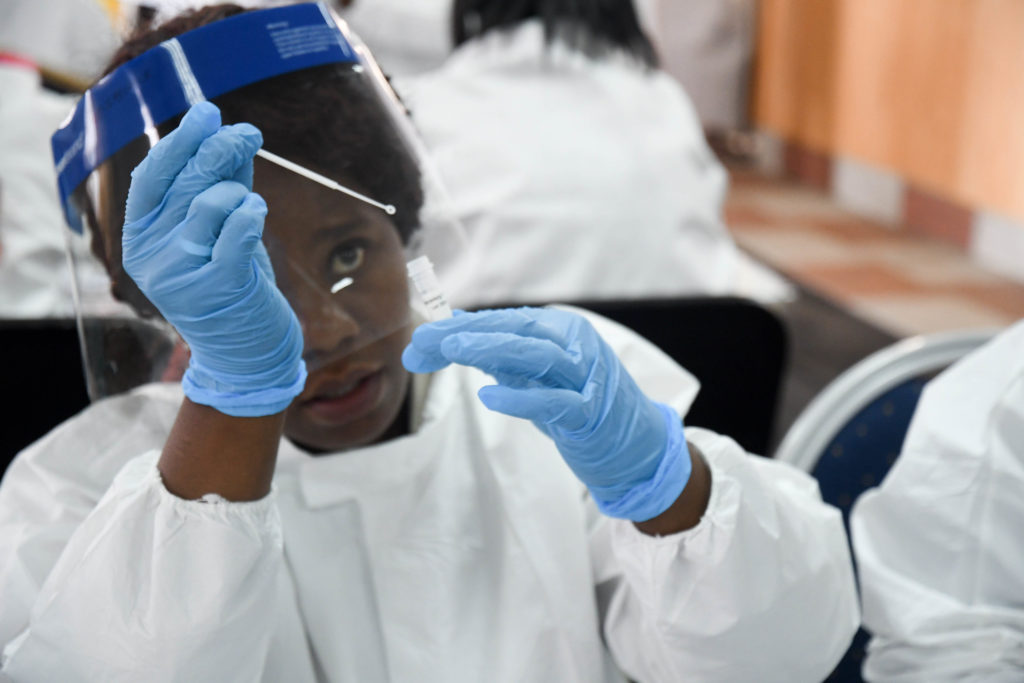 In Nigeria, ICAP is training health workers to provide real-time data of recent HIV infections in order to more efficiently direct public health resources. In 2020, as the training program gained momentum, COVID-19 threatened to interrupt the progress of TRACE efforts by making travel and face-to-face training programs dangerous for both ICAP’s team and in-country health care workers.
In Nigeria, ICAP is training health workers to provide real-time data of recent HIV infections in order to more efficiently direct public health resources. In 2020, as the training program gained momentum, COVID-19 threatened to interrupt the progress of TRACE efforts by making travel and face-to-face training programs dangerous for both ICAP’s team and in-country health care workers.
At a time when Nigeria is facing two public health emergencies, namely COVID-19 and HIV, identifying people with undiagnosed HIV infection, especially those who have been recently infected, could not be more important,” said Adewale Akinjeji, ICAP country director in Nigeria. Recognizing what was at stake in maintaining this work, ICAP leveraged digital meeting platforms and online teaching methods to safely deliver trainings to frontline health care workers.
“With stringent global restrictions on travel and public gatherings in place to halt the transmission of COVID-19, our team needed to quickly retool our training delivery systems so we could restart HIV recency testing in countries we support.”
Jessica Justman, MD,
ICAP Principal Investigator for TRACE
Funding: The U.S. President’s Emergency Plan for AIDS Relief (PEPFAR) through the U.S. Centers for Disease Control and Prevention (CDC)
CUTTING-EDGE
SCIENCE-DRIVEN
COORDINATED

